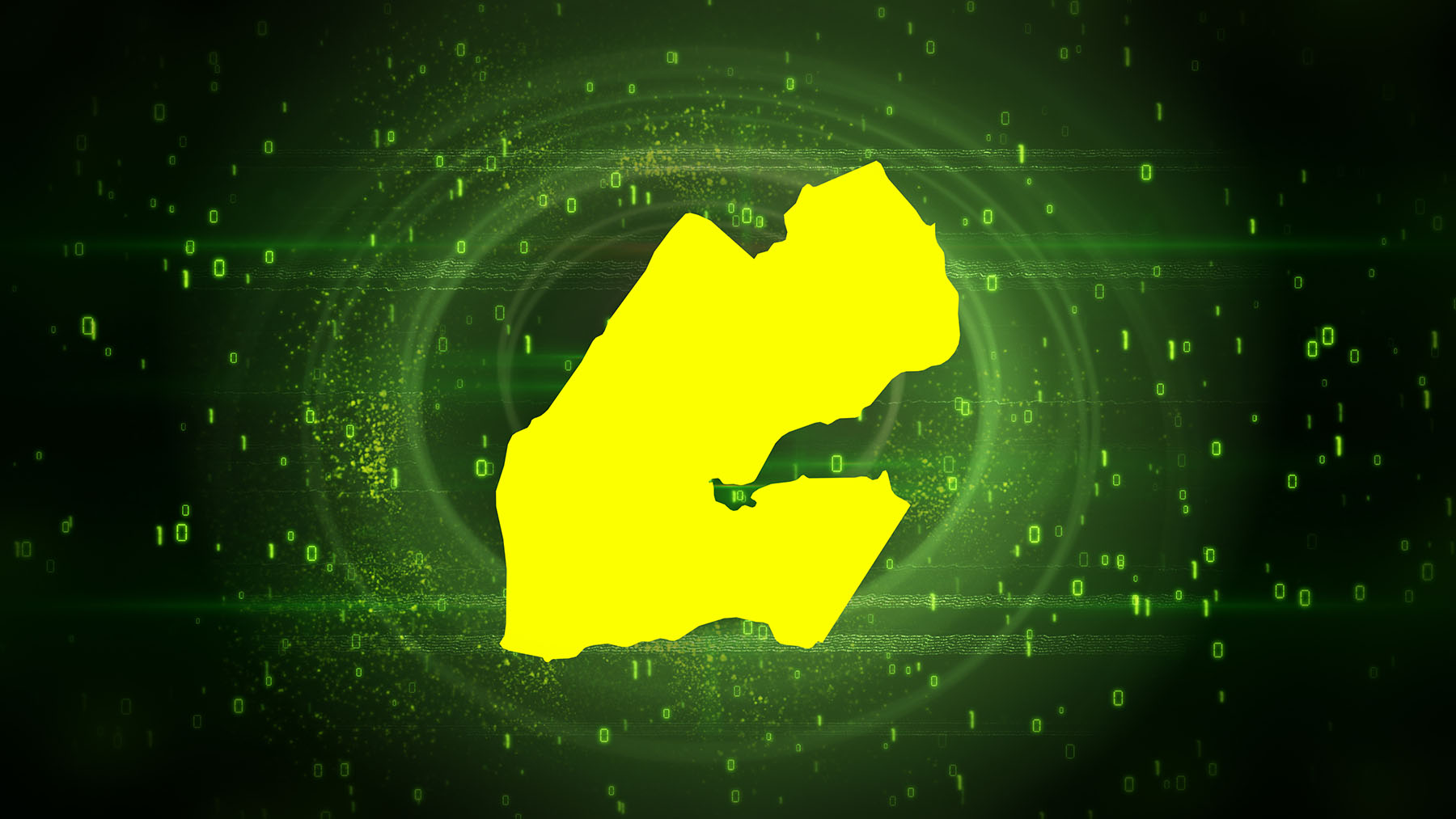Learning
Research
July 28, 2025
Wingu News
Djibouti has transformed into a critical global hub for digital infrastructure, bridging continents through a robust network of submarine cables and digital ecosystems. Situated at the intersection of the Red Sea and Indian Ocean, this small East African nation has leveraged its unique geography, stable governance, and strategic foresight to position itself as the digital gateway to Africa.
Political and Economic Stability: A Platform for Long-Term Infrastructure
The nation's strategic development is guided by Djibouti Vision 2035, which places particular emphasis on advancing digital infrastructure and telecommunications as cornerstones of economic transformation. This vision aligns with initiatives supported by the World Bank, including the "Djibouti: Powering Growth and Strengthening Resilience at a Strategic Crossroads" program and the recent approval of US$90 million in additional financing for the Djibouti Regional Economic Corridor.1
President Ismaïl Omar Guelleh's long-standing leadership has provided continuity in governance, which has proven appealing to international investors. The predictable business environment, reinforced by a currency that is not just stable but USD-pegged with no foreign exchange restrictions, and a consistent regulatory framework, has been crucial in attracting capital for telecommunications and infrastructure ventures worth hundreds of millions of dollars.
Economically, Djibouti continues to show promise. The African Development Bank projects GDP growth of 6.2% in 2024 and 6.6% in 20252, primarily driven by logistics, port operations, transportation, and public administration. Djibouti's hosting of multiple foreign military bases, including those of the U.S., China, France, and Japan underscores its strategic significance and economic resilience.
Government Investment and Market Reforms
Djibouti's government has invested over $200 million into the development of 12 submarine cable systems3, an extraordinary commitment for a country of its size. This strategic investment reflects a broader vision to place connectivity at the heart of national development.
In tandem with public investment, the government has initiated policy reforms aimed at liberalising the telecom sector. Recent developments have already shown tangible results, with reports of reduced fixed internet charges and improved service diversification. The World Bank has noted that reducing telecommunications costs could boost real GDP by 39.1% by 2030 and create 23,000 jobs, underlining the strategic importance of these ongoing reforms.4
Strategic Geography and Regional Connectivity
Djibouti's role goes far beyond serving as a landing point for global systems. It functions as a regional digital hub, extending high-capacity connectivity to East African countries, including Ethiopia, Somalia and Kenya. Its proximity to landlocked Ethiopia, with a population of over 130 million5, is particularly significant as Djibouti already serves as Ethiopia's primary maritime gateway, handling approximately 95% of the country's international trade through its ports.6 This established logistics relationship naturally extends to digital infrastructure, positioning Djibouti as both the physical and digital gateway to the region's largest economy and fastest-growing digital market.
The interconnectedness between the two nations extends beyond trade and digital infrastructure to energy cooperation. Djibouti sources over 65% of its electricity from Ethiopia through a 283-kilometer transmission line connecting Djibouti City with Dire Dawa.7 This power supply is predominantly green energy, primarily from Ethiopia's hydroelectric resources, aligning with Djibouti's Vision 2035 goal of achieving 100% renewable energy by 2035. This energy partnership reinforces the strategic relationship between the countries and demonstrates the multi-dimensional nature of their economic integration.
Building on this foundation of cross-border infrastructure cooperation, Djibouti's regional importance is further reinforced by the development of terrestrial fibre networks and internet exchange points (IXPs), which allow local and intra-African traffic to be routed within the continent. By enabling more direct communication pathways, these IXPs reduce reliance on international transit routes, cut latency, lower bandwidth costs, and significantly improve the performance of African networks.
This comprehensive connectivity infrastructure has positioned the country not only as a critical bridge between continents but also as a foundational pillar for Africa's emerging digital future.
The Convergence of Global Technology Giants
Djibouti’s rising profile in the digital landscape is reflected by the investments of global technology companies. In May 2022, the 2Africa cable system, spanning 45,000 kilometres and set to be the world’s longest subsea fibre optic cable, landed in Djibouti. This initiative is led by a consortium that includes Meta, China Mobile International, MTN GlobalConnect, Orange, Vodafone, and others, highlighting the shared global interest in Djibouti’s connectivity potential.8
Google has similarly invested in the region through its Blue-Raman cable system, which creates a new North-South connectivity corridor linking Europe to India. The Blue cable connects Italy, France, Greece and Israel, while the Raman cable extends from Jordan through Saudi Arabia, Djibouti, and Oman to India.9 This project, developed in partnership with Sparkle (Telecom Italia), Omantel and others, establishes an alternative Europe–India route that bypasses traditional pathways through Egypt.10
Both cable systems offer 16 fibre optic pairs and were initially scheduled to be operational by 2024, though rollout has extended into 2025. Crucially, both 2Africa and Blue-Raman emphasise carrier-neutral facilities and open-access principles in their deployment strategies. Through Wingu's carrier-neutral facilities in Djibouti, service providers can obtain capacity on a fair and equitable basis, enabling healthy internet ecosystem development while ensuring competitive access for all operators and service providers.
Together, these investments provide not only international validation of Djibouti's importance but also critical redundancy in global internet infrastructure while supporting the country's role as a truly neutral connectivity hub.
A Complete Infrastructure Ecosystem
Djibouti’s success in attracting submarine cables is underpinned by its broader infrastructure ecosystem. Terrestrial fibre networks link the country to key markets, including Ethiopia, with high-capacity connections and built-in redundancy through multiple routes. Currently, the Djibouti–Ethiopia link is growing rapidly as regional demand multiplies, supported by resilient backup systems. Additionally, the Horizon Fibre Initiative, a strategic partnership between Ethio telecom, Djibouti Telecom, and Sudatel Telecom Group, plans to establish a multi-terabit terrestrial fibre optic link connecting Djibouti, Ethiopia and Sudan. This initiative offers a transformative solution to the challenges posed by disrupted submarine cables, providing enhanced redundancy and network resilience through terrestrial infrastructure that is more cost-efficient and easier to maintain.11
The integration of telecommunications infrastructure with other national assets, such as embedding fibre into electric power lines and railway systems, demonstrates Djibouti’s holistic approach to infrastructure planning. This level of integration enhances the country's reliability and attractiveness to global telecom operators, cloud service providers, and digital platforms.
Wingu Africa: Architect of Djibouti’s Data Centre and Cloud Digital Backbone
A central player in Djibouti’s digital transformation is Wingu Africa, a leading carrier-neutral data centre provider. Wingu recognised Djibouti's strategic potential as a connectivity hub and has since been instrumental in building its modern digital ecosystem alongside key commercial partners Djibouti Telecom and TO7 Network.
Through its strategic partnership with TO7 Network, Wingu established the TO7 Technology Park, which was officially inaugurated in November 2024 by the President of the Republic of Djibouti. This collaboration resulted in Djibouti's second carrier-neutral data centre and the country's first carrier-neutral cable landing station, representing a significant milestone in the nation's digital infrastructure development.
The Tier III-certified facility at the TO7 Technology Park offers colocation, backhaul/connectivity, IX, satellite/teleport, IaaS and cloud services. Its neutrality encourages open access, enabling competition and collaboration across the network. The facility is now operational with customer onboarding underway, while submarine cable consortia are actively engaging with the neutral cable landing infrastructure.
Wingu operates four campuses in Djibouti, Ethiopia and Tanzania, with plans to expand to seven sites. In Djibouti, its green powered interconnected infrastructure features internet exchange (IX) hubs (in partnership with AMS-IX), integrated CLS, satellite/teleport services and AI-ready infrastructure.
More than a facility provider, Wingu Africa is an ecosystem enabler. Through partnerships with global telecommunications operators and technology companies, it has attracted international traffic to Djibouti’s shores. Its client base spans telecommunications, hyperscalers, global technology companies, satellite companies and enterprises, reflecting the growing demand for secure, low-latency services across East Africa.
Wingu’s presence has helped drive data sovereignty and regional digital development, enhancing Djibouti’s position as a transit route and establishing it as a destination for cloud computing, content delivery, and regional hosting.
AMS-IX Djibouti: Elevating African Interconnection
In September 2024, Djibouti achieved another digital milestone with the launch of AMS-IX Djibouti, a collaboration between Wingu Africa and AMS-IX (Amsterdam Internet Exchange). This partnership transformed the former, already busy Djibouti Internet Exchange (DjIX) into a busier, globally-recognised interconnection platform.12
Since its launch, the exchange has seen peak traffic quadruple and has attracted more than 20 connected networks, including ISPs, CDNs, and regional operators. This growth highlights the latent demand for high-performance local interconnection in East Africa.
AMS-IX Djibouti brings world-class operational practices, technical stability, and global visibility to the region’s digital economy. It reduces dependency on international routing, lowers latency for African users, and supports the development of local content ecosystems, making it a cornerstone of Africa’s evolving internet infrastructure.
Conclusion
Djibouti’s rise as a global connectivity gateway is the result of strategic planning, targeted investment, and effective partnerships. Its political stability, geostrategic location, and forward-thinking government have created fertile ground for large-scale digital infrastructure.
With over a dozen submarine cables, expanding terrestrial fibre networks, and a thriving data centre ecosystem led by Wingu Africa, Djibouti is poised to remain at the forefront of African and global digital transformation. The launch of AMS-IX Djibouti has further solidified the country’s role as a vital internet exchange hub.
As demand for reliable, low-latency connectivity continues to surge across the continent, Djibouti stands ready, not only as a bridge between continents, but as a true digital gateway for Africa’s next generation of innovation and growth.
Learn more about us.




